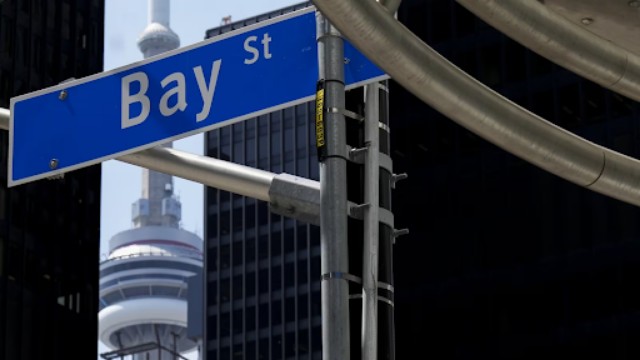
Mike Vinokur, a portfolio manager at MV Wealth Partners under iA Private Wealth, appears on BNN Bloomberg to discuss his view on current market trends.
Canadian television company Corus Entertainment Inc. is exploring a potential sale, working with Jefferies Financial Group to navigate its future amid mounting financial challenges. Corus, a major player in Canada’s TV and radio scene, with ownership of cable channels and local media stations, is reportedly seeking options just months after alerting investors about severe debt concerns. The company's warning highlighted doubts about its ability to stay afloat, given its significant financial burden.
These talks are still in early stages, according to sources familiar with the matter who have chosen to remain anonymous. While Corus has kept quiet about its strategy, and Jefferies has declined to comment, signs point to the company actively considering new paths to manage its rising debt.
In a recent move to gain some financial breathing room, Corus reduced its available credit line by half, reaching a new agreement with a group of lenders led by RBC Capital Markets and TD Securities. The adjusted credit facility lowers Corus’ revolving credit from C$300 million to C$150 million, providing immediate access to up to C$65 million if needed. This revised deal comes as part of a broader strategy to handle Corus’ debt, which now exceeds C$1 billion.
Corus’ debt load includes C$500 million in bonds set to mature in 2028, and another C$250 million due in 2030. A group representing the majority of Corus’ bondholders has brought in Canaccord Genuity Group Inc. and law firm Bennett Jones LLP to negotiate with the company, though neither firm has commented publicly on the proceedings.
The television company, controlled by the Shaw family from Alberta, has seen its stock suffer severely in recent months due to declining advertising revenues and escalating debt worries. Once valued at over C$1 billion as recently as last year, Corus’ market capitalization has now plummeted to around C$23 million, pushing its shares into penny-stock territory. Corus shares closed at just 11.5 cents CAD on Friday, marking an 80% drop in value this year alone.
Adding to Corus' struggles was a substantial setback earlier this year when the company lost key programming and trademark deals with Warner Bros Discovery Inc. This loss impacted the content lineup for some of Corus' most popular channels, further diminishing its appeal to advertisers and viewers.
A potential sale might be complicated, as some industry analysts suggest that restructuring the company could result in a total wipeout for current shareholders. This is especially likely if Corus pursues a solution that places creditors’ interests above those of equity holders.
Earlier this year, Quebecor Inc., another major Canadian media firm, expressed interest in acquiring Corus, as reported by The Globe and Mail in September. However, there has been no public update on Quebecor’s offer, and it remains unclear if the potential buyer is still in discussions with Corus.
As Corus continues to weigh its options, the company faces an uphill battle to regain stability in an increasingly challenging market. Its next steps will be crucial for both the company’s legacy and its standing in Canada’s media landscape.















